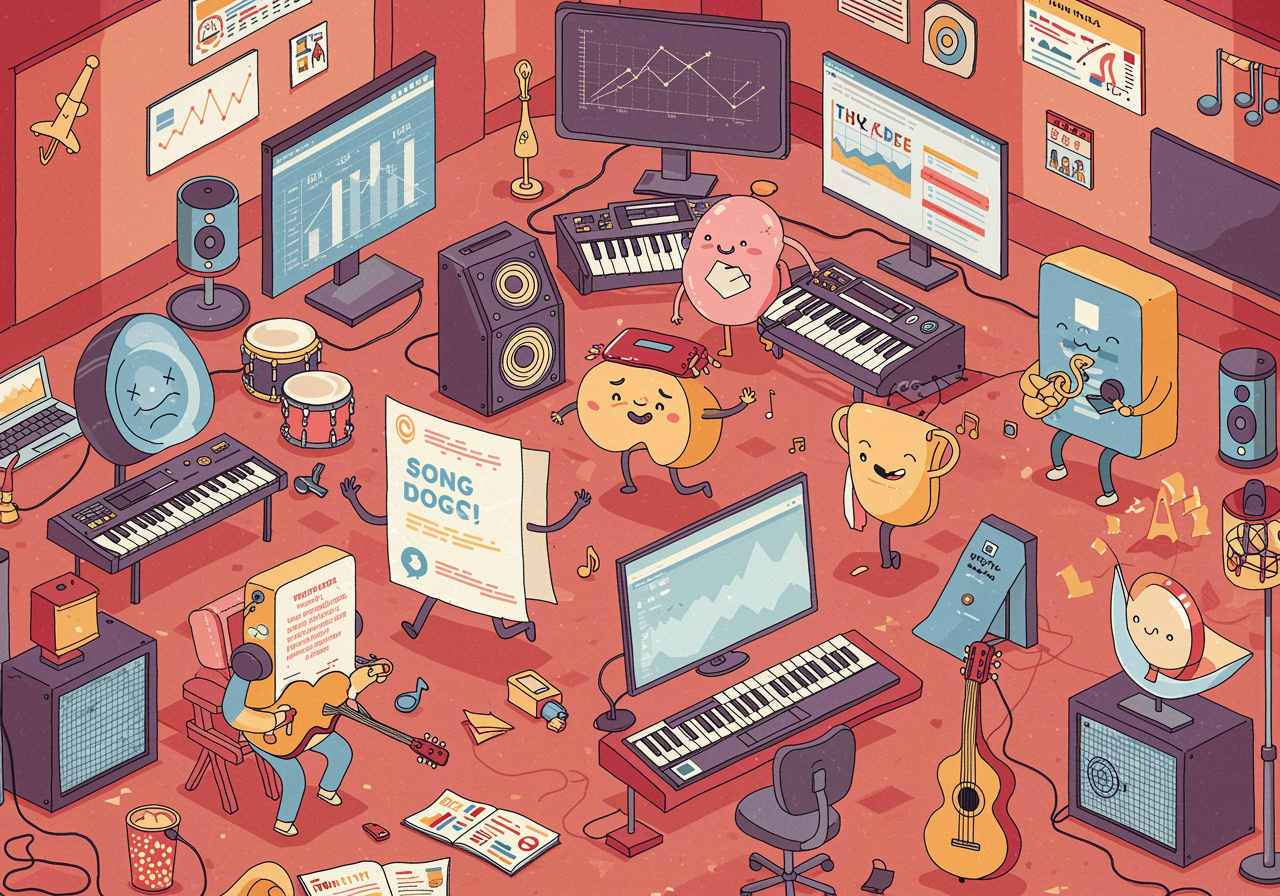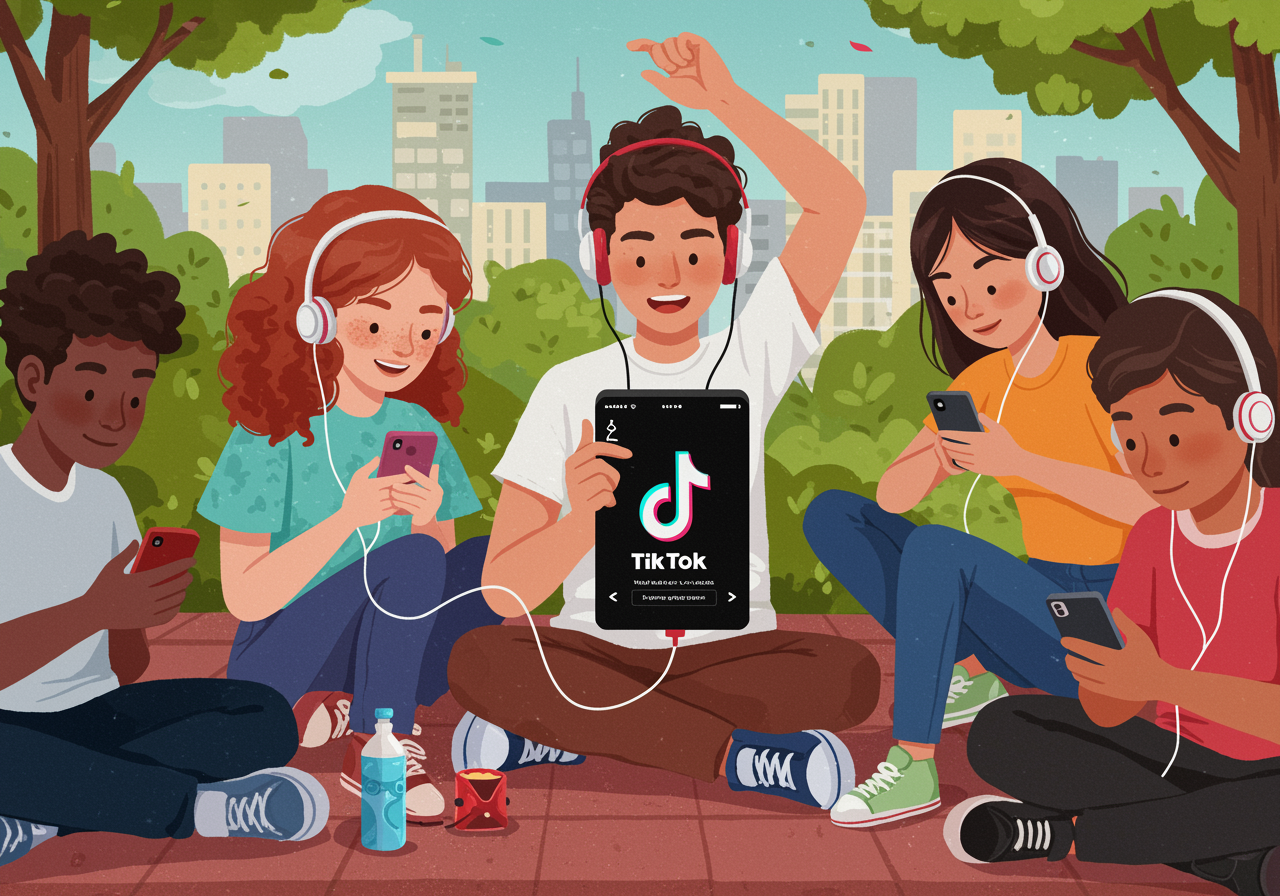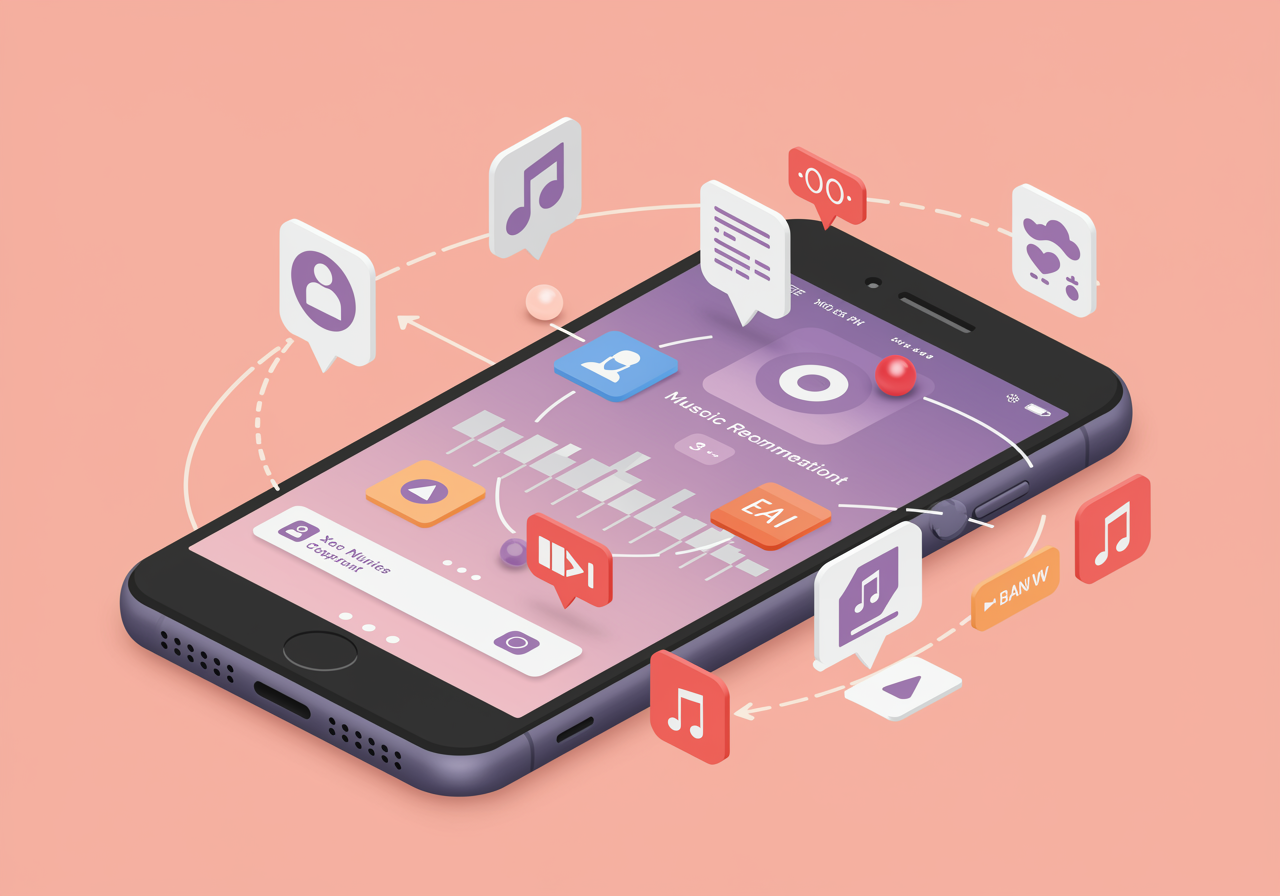The Secret Recipe for Viral Hits: Why Some Songs Rule the World
Crack the code behind global music phenomena and discover what makes a song unstoppable
Dive into the fascinating world of viral music and uncover the surprising mix of technology, timing, and human psychology that turns ordinary songs into worldwide sensations.
Overview
Ever wonder why that one song gets stuck in everyone's head while another equally catchy tune disappears? It's not just about talent or luck – there's a whole invisible world of algorithms, timing, and human psychology at work! Understanding how songs go viral helps kids think critically about the technology that shapes their daily experiences. Plus, it's a perfect chance to explore how social media, streaming platforms, and even our own brains work together to create cultural phenomena that connect millions of people worldwide.

Understand in 30 Seconds
Get up to speed quickly
- The Algorithm Game: Streaming platforms use secret formulas to decide which songs get recommended to millions of users. Getting picked by these algorithms is like winning a digital lottery ticket.
- The Snowball Effect: Once a song starts getting popular, it gets more popular even faster. It's like a snowball rolling downhill – the bigger it gets, the more snow it picks up!
- Perfect Timing Magic: Sometimes a song hits at exactly the right moment when people need that specific vibe. Think summer anthems released right before vacation season.
- The 15-Second Hook: With TikTok and short attention spans, songs need to grab you in the first few seconds. The most memorable part has to hit fast and stick hard.
Real Life Scenario
Situations you can relate to
Imagine you and your friend both bake the same chocolate chip cookie recipe – same ingredients, same oven time, everything identical. But your friend's cookies somehow become the talk of the school while yours barely get noticed. What happened? Maybe your friend posted a funny video of the baking process that went viral on social media. Maybe they gave them out right before lunch when everyone was hungry. Or maybe a popular kid tried one first and told everyone else. The same thing happens with music! Two songs can sound similar, but one might get featured in a trending TikTok dance, or released right when people are feeling a certain emotion, or picked up by a streaming algorithm that shows it to the perfect audience at the perfect time.

Role Play
Spark a conversation with “what if” scenarios
What if you were a music streaming app's algorithm deciding which song to recommend next?
- Role play: Have your child play 'algorithm detective' – look at their recent music listening history and try to predict what song the app might suggest next based on patterns, genres, and moods.
What if you had to make a 15-second TikTok that could make an unknown song go viral?
- Role play: Pick a random song and brainstorm creative video ideas – funny dances, relatable scenarios, or challenges that would make people want to use that song in their own videos.
What if you were a record label executive deciding which song to promote heavily?
- Role play: Listen to a few different songs and discuss which ones have 'hit potential' – catchy hooks, relatable lyrics, good timing for current events or seasons.
FAQs
Frequently asked questions people want to know
Do record labels pay to make songs more popular?
Yes! Labels spend money on marketing, playlist placements, and sometimes even paying influencers to use songs. It's like buying ads for any other product.
Why do some really good songs never become hits?
Timing, luck, and exposure matter just as much as quality. A amazing song might get lost in the millions uploaded daily, or released at the wrong time.
Can anyone predict which songs will go viral?
Not really! Even music experts get surprised. There are patterns we can spot, but viral hits often have that special 'lightning in a bottle' quality.
Examples in the Wild
See how this works day to day
- Old Town Road by Lil Nas X started as a meme on TikTok before becoming the longest-running #1 hit in Billboard history (Billboard Magazine)
- Spotify's algorithm-driven playlists like Discover Weekly have introduced millions of users to new hit songs (Spotify Technology Reports)
- Heat Waves by Glass Animals took over a year to become a hit, proving that timing isn't always immediate (Rolling Stone)
- TikTok's 15-30 second format has changed how artists write songs, focusing on immediate hooks rather than gradual builds (Music Business Worldwide)
In Summary
What you should know before you start
- Algorithms on streaming platforms act like invisible matchmakers, connecting songs with the right audiences at the right time
- Social media, especially TikTok, has become the new radio – where 15-second clips can launch global phenomena
- The 'snowball effect' means popular songs get more popular faster, creating momentum that's hard to stop
- Perfect timing, catchy hooks, and a bit of luck are just as important as musical talent in creating viral hits
Pro-tip for Parents
You got this!
If your teen dismisses a song as 'just lucky' or gets frustrated that their favorite artist isn't more popular, use it as a teaching moment about how success often involves multiple factors working together. Help them understand that recognizing talent is different from understanding market success – both perspectives are valuable and neither diminishes the art itself.

Keep an Eye Out For
Find these examples in everyday life
- Notice when a song suddenly appears everywhere – in commercials, social media, and your teen's playlist – and discuss what might have triggered its viral moment
- Watch for songs that slowly climb the charts over months rather than immediately exploding, and explore what sustained their growth
- Pay attention to how your teen discovers new music and discuss the role of recommendations, friends, and algorithms in shaping their musical taste
Explore Beyond
Look up these related research topics
- How do social media algorithms work in other areas like video recommendations and news feeds?
- What makes content go viral beyond just music – videos, memes, and trends?
- How has technology changed other entertainment industries like movies, books, and gaming?